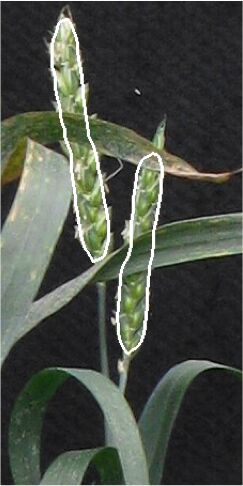
April 16, 2018, by jicke
Computer Science receives share of UKRI’s £3m network funding to solve life science challenges
The University of Nottingham will lead one of five research networks to share a £3 million award through a joint technology initiative that will harness new and emerging developments from the engineering and physical sciences to advance discovery research in the life sciences.
Technology Touching Life is a joint initiative between the Medical Research Council (MRC), Biotechnology and Biological Sciences Research Council (BBSRC) and the Engineering and Physical Sciences Research Council (EPSRC), all part of UK Research and Innovation.
PhenomUK
Professor Tony Pridmore from the School of Computer Science is leading the project, PhenomUK. This will develop technologies to gather data on the structure and function of plants – the phenome – to help improve crop performance to meet the increased food demands of our growing population. The network will be multidisciplinary, encouraging engineering, physical and computer scientists to work alongside plant biologists to develop automation, sensors and data analysis techniques for profiling plants in in a variety of environments.
Professor Pridmore said: “We’re delighted to be receiving this award, it is an important step towards finding ways to improve crop production. Though the tools needed to support studies of plants’ genetic structure (the genome) are well developed. Profiling the structure and function of plants (the phenome) remains a major bottleneck. We wish to see both the practical importance of plant phenotyping and the challenges it presents more widely appreciated outside the life sciences, and the development of phenotyping solutions, in partnership with plant and agricultural scientists, become a mainstream activity in the engineering and physical sciences.”
The aims of PhenomUK are:
- to ensure that UK scientists have access to the innovative technological capabilities needed to drive world-leading basic discovery research in the plant, crop and agricultural sciences
- to provide the deeper understanding of national plant phenotyping capabilities, needs and opportunities required to allow the UK to participate fully in and gain maximum benefit from international initiatives such as the pan-European infrastructure being created by the ESFRI EMPHASIS project (https://emphasis.plant-phenotyping.eu).
Plans for PhenomUK include; an annual UK conference on Crop Phenotyping, issue-based and outreach workshops, Makefests/Hackathons, networking visits, pilot projects and feasibility studies.
Advancing science
Many new technologies play a crucial role in advancing life sciences research and have their origins in the engineering and physical sciences. Revolutionary examples, which researchers funded by the research councils have contributed to developing, include genome editing, 3D printing of custom chemicals and super-resolution microscopy. These are innovations that have had an enormous impact on life sciences, agriculture and human health.
By facilitating partnerships between engineers, physical sciences researchers and health and life scientists, these networks aim to nurture the adventurous research needed to develop the next generation of advanced technology.
Dr Nathan Richardson, Head of Molecular and Cellular Medicine at the MRC, said: “The development and application of innovative technologies is crucial to furthering our knowledge and understanding across the biomedical sciences. These Technology Touching Life networks offer an exciting opportunity to bring researchers together, across a number of disciplines, to explore the tools and technologies of the future, with impacts ranging from how we grow cells to better mimic the human body, to following dynamic changes in cells and tissue.”
Each funded network focuses on an exciting area of opportunity where interdisciplinary working has the potential to develop and exploit new technologies. This includes imaging live cells within tissues and developing ‘organs-on-chips’ that mimic biological tissue structures and function. The networks are national and have open memberships, providing opportunities for researchers across the UK to get involved as the networks develop.
John Hand, Head of Physical Sciences at EPSRC, said: “Novel engineering and physical sciences research is vital to the development of new tools and technologies for discovery-led research in the life and biomedical sciences. These new Technology Touching Life networks will support the development of cross-disciplinary collaborations and encourage novel, exciting technology solutions across the range of the life sciences.”
Dr Amanda Collis, BBSRC Executive Director of Science, commented: “We are delighted to support this cross-council effort to empower life science research through the development of new technologies. The networks are a fantastic opportunity to advance fields such as imaging, integrative biology and crop science while fostering interdisciplinary research and community building.”
No comments yet, fill out a comment to be the first

Leave a Reply